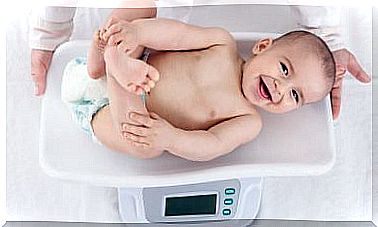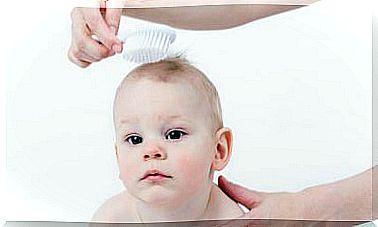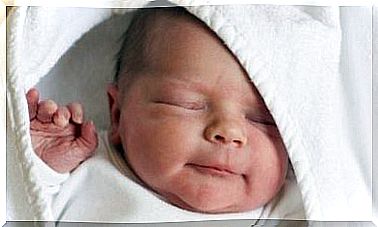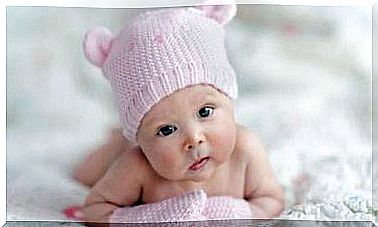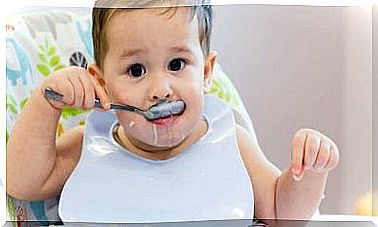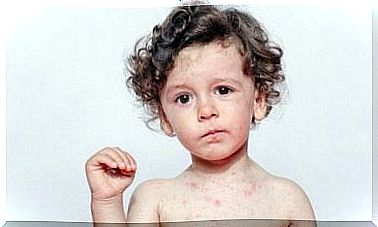The Effects Of The Mother Being Depressed On Children

Depression during pregnancy and after birth is much more common than you might think. In addition, many women continue to suffer from it for several years afterwards, which affects their parenting. Knowing how a child is affected by the mother’s depression is the first step towards being able to take appropriate action.
Many of the symptoms of depression are easy to confuse with normal experiences during pregnancy and after childbirth. Therefore, there is a great risk that many women do not get the diagnosis and treatment they need. And this only exacerbates the harmful effects of their condition.
However, the consequences of depression do not only affect those who suffer from it. When the mother is depressed, it affects everyone around, especially their children. Given that early childhood is such an important time in a person’s development, children’s early experiences can continue to affect them even in adulthood.
The effects of the mother being depressed on children
Even during pregnancy, children of depressed mothers have a faster heart rate. In addition, there is a higher risk of premature birth and low birth weight.
After birth, these babies are less active and less sensitive to facial expressions and different tone of voice. In addition, they have a greater amount of stress hormones than other infants.
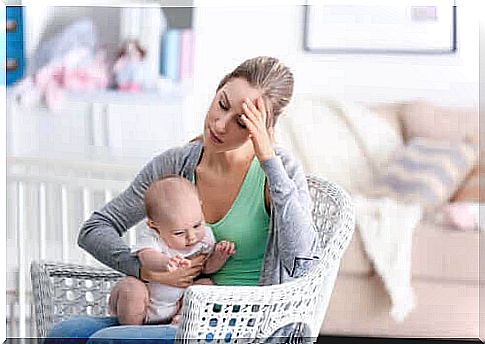
At the same time, these children are more likely to develop mood disorders and have difficulty adapting socially and academically. It is also likely that when the mother is depressed, it affects the baby’s intelligence as well as health. And finally, these children are at risk of developing their own depression during their lifetime.
However, not all children of depressed mothers experience these difficulties. It is therefore an indication that the relationship is not direct or unambiguous. Rather, it tells us that certain mediating factors come into play.
What other factors are affecting?
The connection between mother and child
A positive connection between mother and child is crucial for the young child’s well-being. However, mothers suffering from depression find it difficult to properly understand the needs of their children.
Similarly, they have difficulty interpreting their communication, which affects their attachment and is very confusing for infants.
In some cases, the mother may not meet the child’s needs, or her response to these needs may be inconsistent. However, this results in an insecure attachment, which has emotional consequences for the child. But it is the depression itself that prevents women from perceiving and responding correctly to the baby’s signs and signals.
Conflicts within marriage
Another area that affects children is the relationship between the parents. When one of the parents has a disease such as depression, this inevitably affects the relationship with his or her partner.
In these cases, communication between the parents is often affected, which in turn leads to quarrels and accusations. In general, they fail to resolve their conflicts, which only makes the situation worse. Witnessing conflicts between their parents significantly affects the child’s function in different areas.

Insufficient stimulus
Finally, mothers who suffer from depression are less involved in their children’s upbringing. With emotions such as apathy and despair, they offer their children fewer learning experiences and educational toys. At the same time, they spend less time on sensory and intellectual stimulation.
In addition, they present a behavioral model that is inappropriate for their children’s future. Young children grow up and observe their mother’s behavior where grief, lack of interest and exhaustion are dominant. The continuous presence of this model during a child’s upbringing will affect his or her personality to some extent.
How to reduce the impact of the mother being depressed
The first thing you need to do is deal with your depression, or pay attention to symptoms if it concerns your partner, especially right after the baby is born. It’s okay to ask for help – it’s actually absolutely necessary.
But getting professional help is only part of the solution. You can also try to minimize the effect of your depression on your child by offering the right stimulus and responding to your child’s needs appropriately.
What you should try to give your child is a positive family environment that can help reduce the influence of depression on his or her upbringing.
